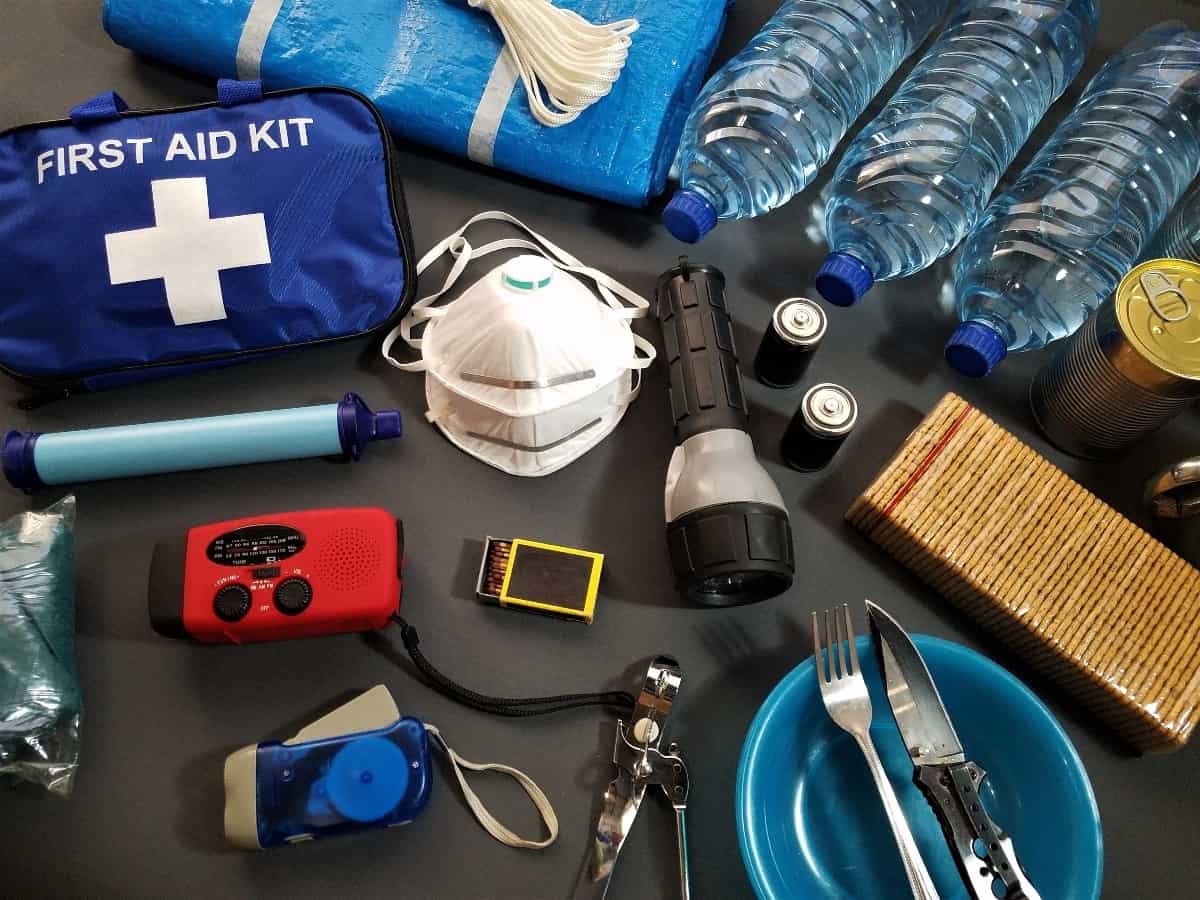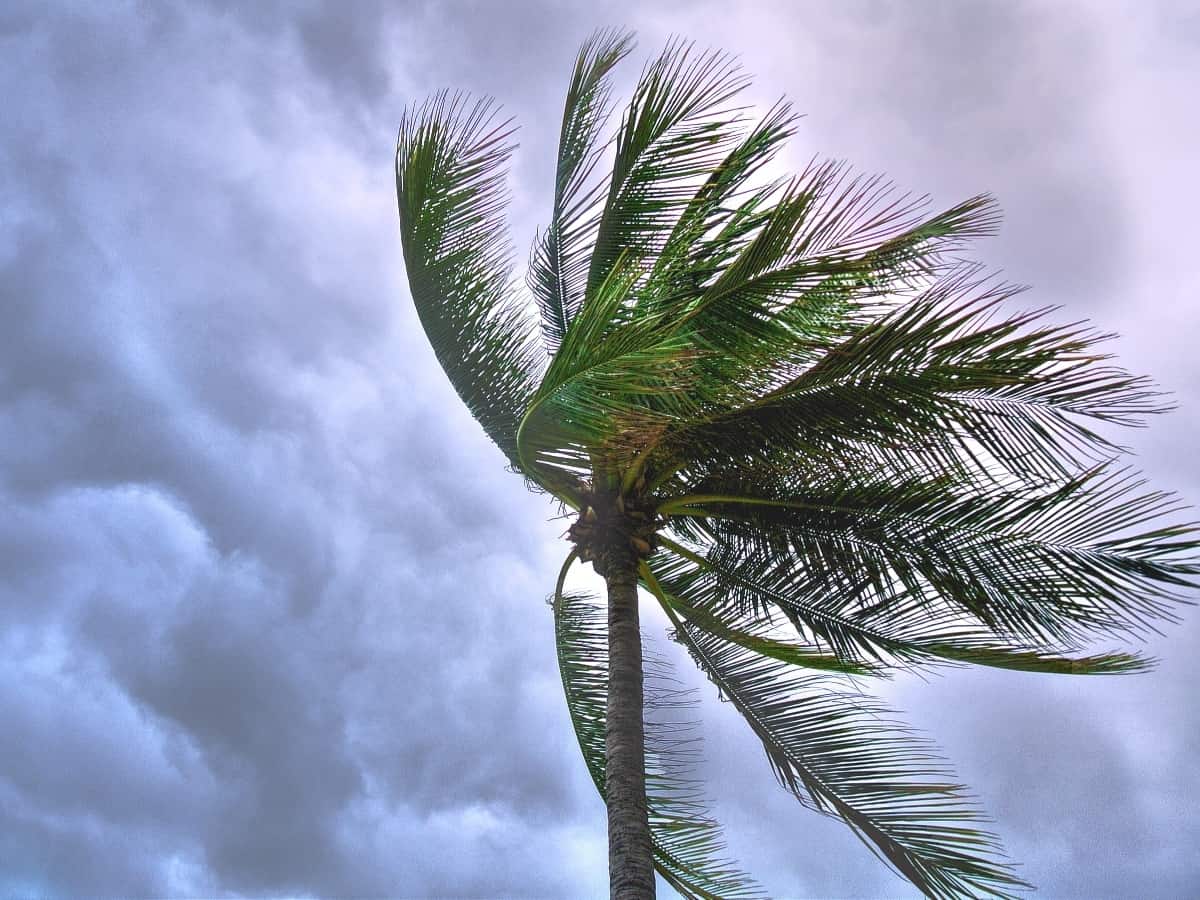Are you in the middle of hurricane season? Depending on where you live, severe weather like hurricanes can wreak havoc and cause problems regularly. The best thing that you can do is to be ready for the worst. It can pay to know how to prepare for power outage — before the electricity goes out!
Hurricane Watch vs. Hurricane Warning
If you live in an area prone to severe storms, you should know the difference between a hurricane watch and warning alert. Listen to the National Weather Service online or on your phone to hear alerts for your region- they often offer instructions and tips on how to prepare for power outage in your distinct region.
A hurricane watch indicates that hurricane conditions — typically winds of 74mph or more — are possible in the designated region. These typically are provided about 48 hours before the storm is expected.
A hurricane warning is more dire. This indicates that hurricane conditions are expected to hit the designated region. These warnings are typically issued about 36 hours beforehand, if possible, to give residents time to prepare or evacuate.
When it comes to a natural occurrence like a hurricane, being prepared makes all the difference. So, how can you get ready for a hurricane and how to prepare for power outage? Here is what you need to know.

Supplies Needed for a Hurricane
The right supplies on hand during a storm is everything — pull together your own emergency kit. If you are wondering how to prepare for power outage during hurricane season, it starts with these basic and essential supplies:
- Per the recommended guidelines, one gallon of drinking water per person per day.
- Water purification tablets to ensure any other water you drink is safe for consumption.
- Canned food, non-perishables, and a manual can opener.
- First aid kit, that ideally contains bandages, hydrogen peroxide, gauze, tape, rubbing alcohol, scissors, tweezers, emergency foil blanket, and over-the-counter meds.
- A rain poncho or shell.
- Any pertinent medications.
- Flashlight and batteries.
- Blanket.
- Matches or a lighter.
- An extra set of warm, dry clothes and shoes.
It is also suggested that you pack comfort items in your ‘bug-out’ bag in the event you are evacuated or need to leave your home- especially with children. This might include things like a couple of books, art supplies, or a favorite plush toy.
Preparations for a Hurricane
If you live in an area prone to severe storms- including hurricanes- prepare yourself ahead of time. If you wait until the power goes out during a hurricane, it is too late. Stock up on food, bottled water, and supplies now, so you can rest easy later. While non-perishables are best, you may be able to refrigerate other food stores with power supplied by your own generator.
Some other things that you may not have considered include these preparations and tips:
- If you rely on computers, printers, copiers, or similar devices, make sure that you have extra batteries with a power converter on-hand. This is particularly prudent if you operate a business.
- A generator ensures that your computer equipment — a pricey investment — is safe. Don’t own or want to buy a generator? Consider renting one.
- Leave your garage door open so that when and if an outage occurs, your door won’t be inaccessible during the power outage.
- How will you communicate with others during the storm? Plan-ahead for alternate forms of telecommunication. Since your landline won’t be working, make sure that you are prepared with a cell phone or laptop, and that you have a way to power it during an outage. This also provides a way to stay informed with weather alerts and pertinent news.
- Take the initiative to remove any items from your yard or landscape that could become airborne in strong wind. This includes items like lawn chairs, picnic tables, or plant pots. Even a small window box can cause costly damage if it is hurled through your window.
- If you are expecting heavy winds, go ahead and tape your windows to prevent shattering. Stock up on masking tape for such instances. Got shutters? Even better- close and secure them before the storm is expected to hit.
- Keep your car full of gas for evacuating or bugging-out in a hurry. Nobody wants to risk their wellbeing waiting in long lines for gas during a disaster situation.
Other preparations depend on whether you plan to evacuate or if you plan to stay at home and shelter in-place.

Evacuate or Shelter in Place?
So, the big question during a severe storm or hurricane is whether to evacuate or stay at home. You should always defer to the local authorities regarding the issue of whether to evacuate or stay home, and remember that they may have access to information that you do not.
Always comply with an evacuation order. It is not worth jeopardizing your safety and wellbeing to protect your belongings. Just as there are evacuation orders, you may also hear an order to stay in and at your home.
Preparations at Home
In some instances, it might be safer to shelter in place rather than to try and drive anywhere. If you are riding out the storm at home, here is what you should do:
- Make sure your emergency supplies are stored accessible and at-hand.
- Maintain a radio or TV channel for weather updates — or log on to a computer with hotspot access from a cell phone, if possible.
- Do not go outside. Wait until the hurricane is officially over before venturing out. There are many hazards that can cause injury- stay inside, instead.
- Keep away from the windows in the house. If these break during the storm, glass could shatter and hurt you. Ideally, stay in an interior room of the house or dwelling- without windows- and wait for the weather to pass.
Always be ready and prepared to go in case of an evacuation order or you need to bug-out. If your home sustains damage during the hurricane, you may need to leave and head somewhere else, like a friend’s home or a shelter. Have your emergency kit ready to go for these situations.
Preparations for Evacuation
If you hear the order to evacuate, do it. Do not ignore or disregard an evacuation order. Here are some other tips to prepare when evacuating:
- Don’t delay or stall. Get your emergency supplies, bug-out bag, and go. Don’t forget your cell phone, charger, ID, and some cash.
- Keep a few basic automotive needs in the trunk — like antifreeze, oil, and a spare tire — to ensure you get where you are going safely. Make sure that you have jumper cables and even road flares, if possible.
- Unplug things around the home if you have time. Turn off the water and power if you can do so quickly.
- Take the recommended routes and roads offered by the emergency response workers. Local weather stations will provide this information, too.
- Never try to drive through a road that has been flooded. It only takes a mere six inches of water to sweep a car away. At the very least, it can cause your car to stall out.
If you have pets and your region is prone to severe storms or hurricanes, prepare now. Do not wait until you are in the middle of a crisis to find out more about evacuating with animals. You can learn more by contacting your local emergency management office to ask about emergency accommodations for owners with pets during these types of situations.
A Note About Security
Some people may be reticent to leave their home or property during a disaster due to potential looting or theft. This is a viable concern, that makes security equipment even more vital. Make sure to look for Security equipment that can withstand a power outage — including a camera that works even when there is no power to protect your property from being vulnerable during a hurricane. Remote systems can be accessed from anywhere- back up to the internet so even if local IT infrastructure is impacted, your system will not be.
Talk to a security system professional about IP cameras that can monitor your home during outages, and that are accessible to you via your smartphone. Stay protected.

Want To Learn More About the Services Your Home Needs? Visit ONIT Home online today.
Got questions about home services, like how to prepare for power outage? You can rely on ONIT Home; ONIT Home specializes in simplifying and demystifying home services for everybody. We are proud to be a trusted source, providing honest and comprehensive information and insight, when you need it.
To get started, visit us online or give us a call today at 1-833-433-0331.



